YEARS Golden
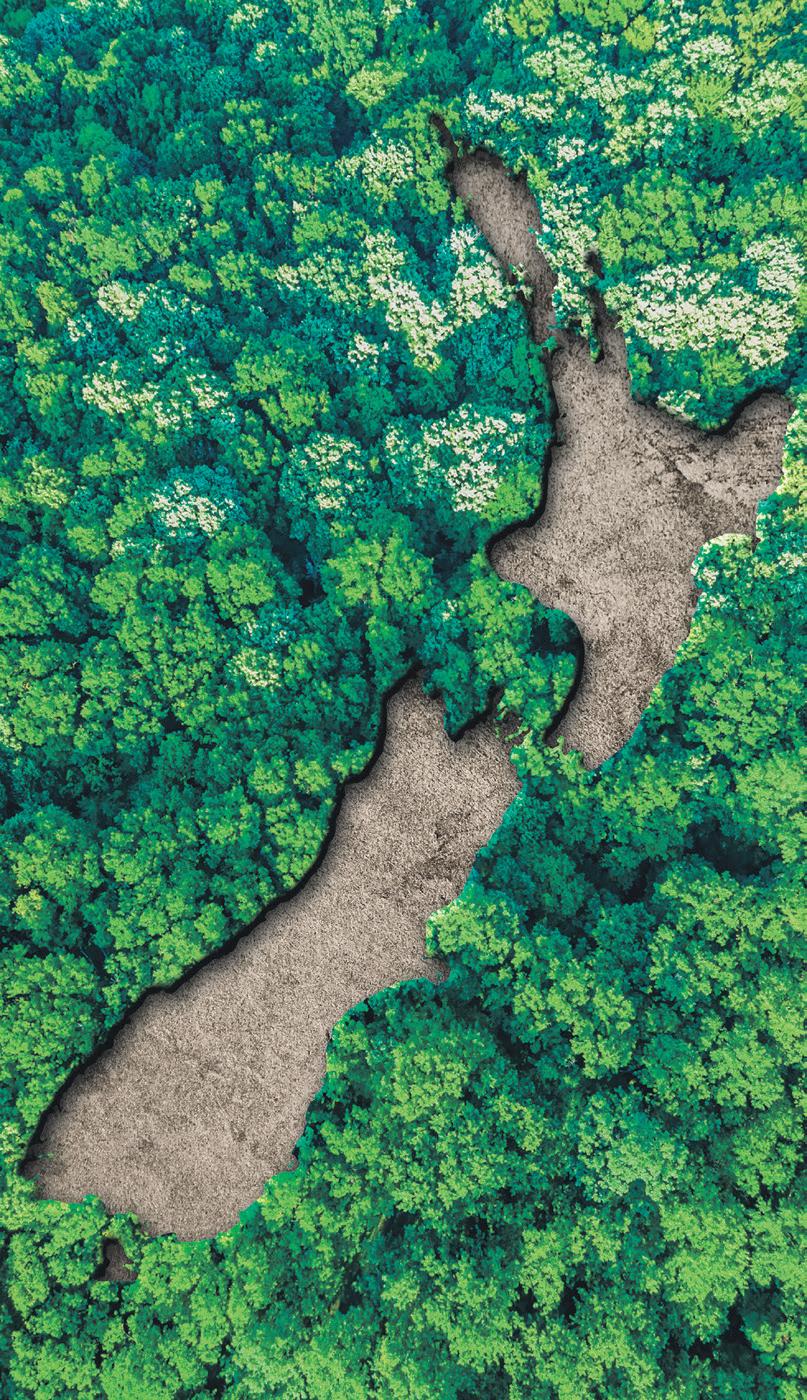
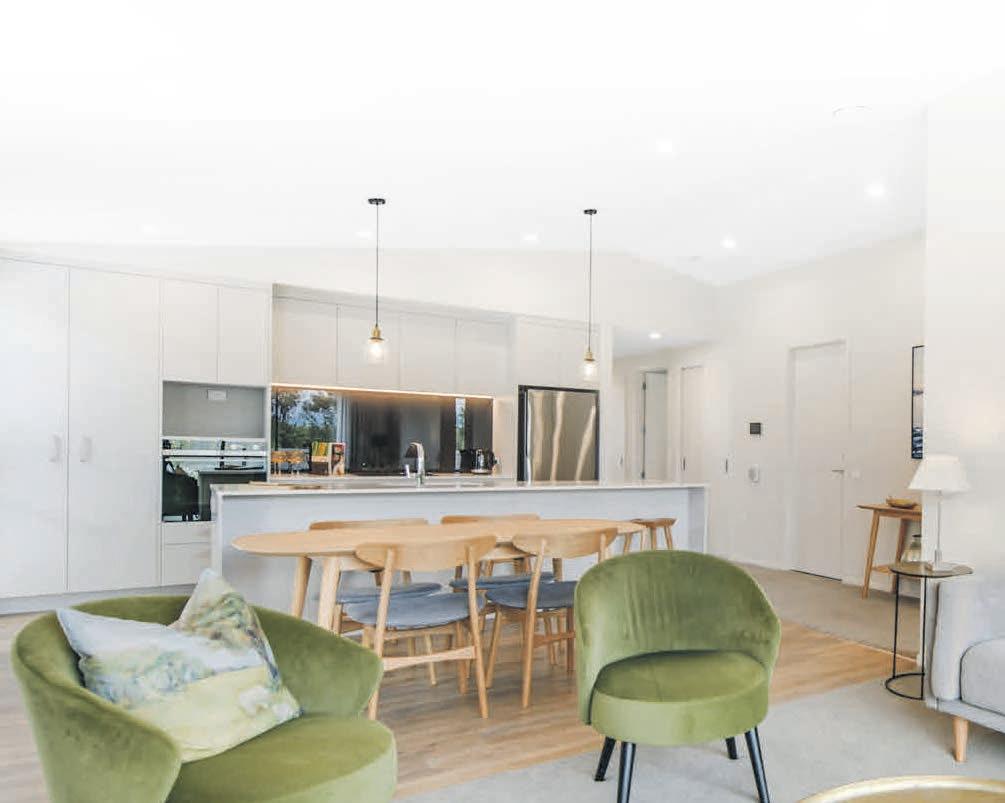





Midweek talked to Masterton locals Ray and Karen Stewart about the state of the nation.
Now in his 80s, Ray says we are yet to nd ways to live with a socially just foundation and an environmentally safe ceiling and so are committing intergenerational theft. We are consuming at such a rate that we’re driving climate change, income inequality, and social division.
Democracy is being eroded. It all starts with how much we consume.
Having spent his life working for global NGOs and rubbing shoulders with the UN on politico-
military, environmental, and cultural issues, Ray’s views are based on evidence.
“Climate change is driven by an economic model that is no longer t for purpose,” he says. “There must be some limits to absolute freedom.” Just one example is how our approach to food production has led to biodiversity loss. Ray refers to this as “the insidious creep of climate change”.
Ray’s wife Karen is a fourth generation Wairarapian, with 40 years of teaching and leading primary schools under her belt, including at Cornwall Street, Douglas Park, and Lake View. Now in her


late-60s, Karen remains ercely dedicated to the idea that “without the environment, we are nothing” and so children must learn about it, learn about their place in it, and learn to respect it.
Locally, Karen and Ray were founding members of the Lansdowne Community Group, planting along walking trails, developing the park in Roberts Road, and promoting Lansdowne as a vibrant part of Masterton’s community. They were also founding members of Sustainable Wairarapa Inc., a group devoted to restoration projects, scienti c research, public presentations, and campaigns.
The couple agrees that a framework that considers all well-beings (economic, social, environmental, and cultural) must be reinstated. And we need to nd ways to keep a dialogue going so that communities can be part of the solution.
“The Fast Track Bill is just one example of this government’s decision to chip away at democracy in New Zealand. There are no checks or balances to protect environmental and social priorities and will have poor outcomes,” Ray says.
Karen adds, “we want to be optimistic, but it’s increasingly di cult to maintain optimism in the face of global, national, and local trajectories.”
Our new stage of villas and townhouses are complete and ready to view now at Arvida Lansdowne Estate in Masterton. We have more options for you to choose from, including smaller properties or a more private option should you prefer. These brand-new builds include open-plan living areas, indoor/outdoor flow, a garage and ensuite. Enjoy all the benefits of a low maintenance home that will keep you cosy in winter.
Don’t miss this opportunity to shape a growing community full of like-minded people.
Learn more at arvida.co.nz or call Wendy on 027 280 4065. 180 State Highway 2, Masterton, Wairarapa.
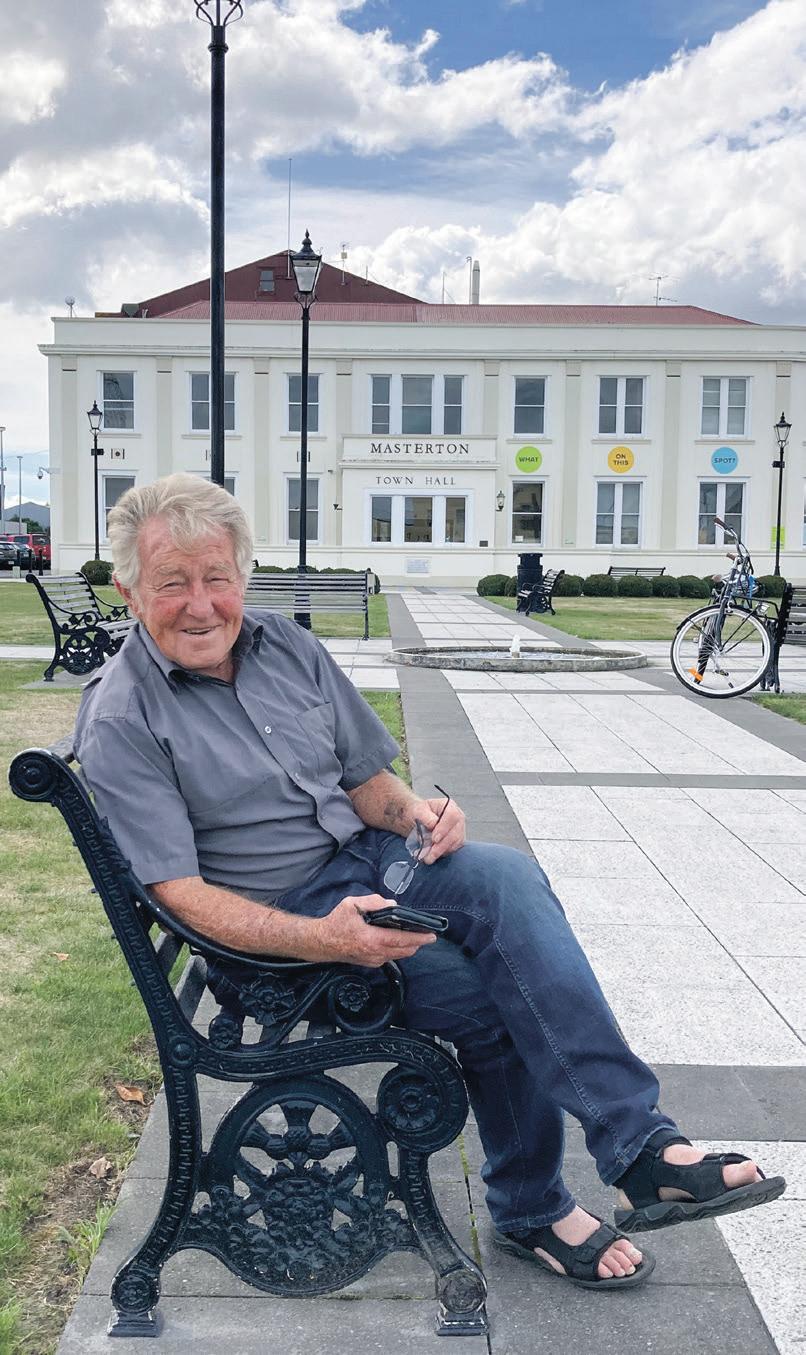
Midweek also talked to Chris Peterson about the state of the nation.
Chris describes himself, in his late 70s, as “an old engine.” He’s wellknown locally, having been born and bred in Wairarapa, and having served both as a caretaker of Holdsworth for nearly 20 years (“it’s my turangawewae”) and as a Masterton District Councillor for 27 years. The state of the nation in 2024 is described by Chris as simultaneously challenging and hopefully optimistic. Challenging – in that the marvellous innovations and technology developed over his
To pick your perfect retirement, first you need the right options. At WAIRARAPA VILLAGE that is exactly what we offer. We have a fine selection of one and two bedroom independent living villas – each one spacious and designed to give you the freedom of easy retirement living.
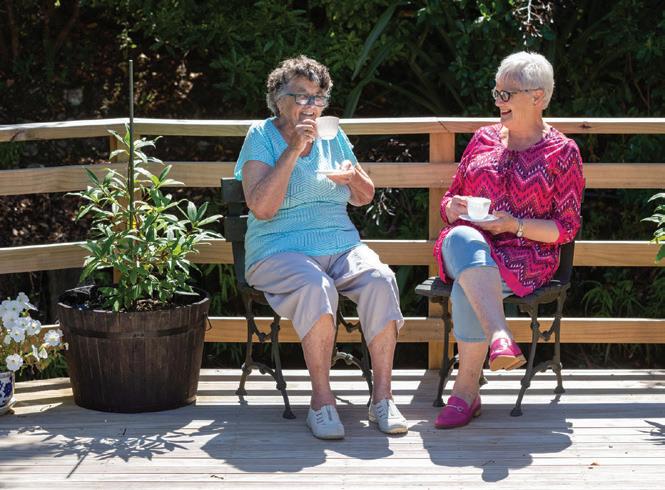
If you need a helping hand with daily chores such as cooking and cleaning or require regular personal assistance, we also have serviced apartments that provide you with the perfect balance of independence and personalised care.


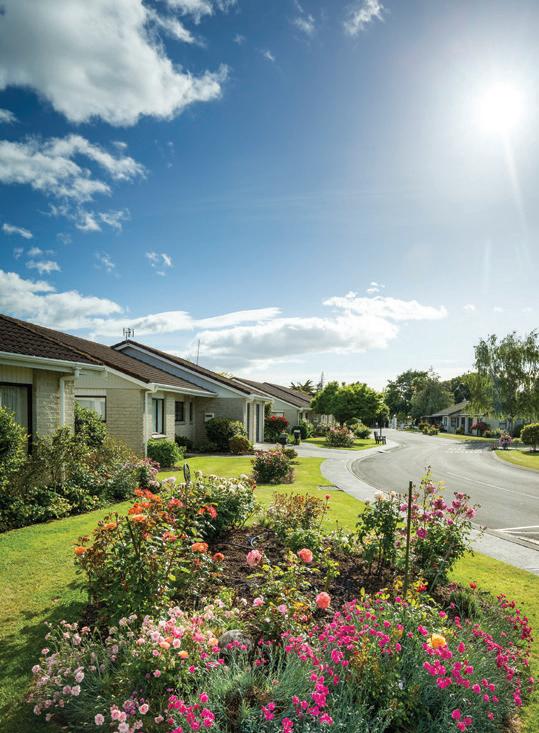
lifetime have come at a cost to the natural world, especially in developing countries. Hopefully optimistic – in that people are having conversations about climate issues, and are planting trees, recycling, and working towards renewable energy sources.
If we are to reverse some of the trends being observed in the natural world, Chris says, “we in the developed countries need to ease up on our consumption of stu .” He also says that we need to redouble our e orts around renewable energy.
Chris remembers reading Rachel Carson’s book Silent Spring
about environmental harm caused by the indiscriminate use of synthetic pesticides, many of which were developed during WWII. The book led to a reversal in U.S.’s pesticide policy and has since been named one of the 25 greatest science books of all time.
Discovering the book in the 1960s, Chris was at that time a deer culler in the Tararuas and a student of zoology, geology, and botany at Victoria University of Wellington. Before he read Silent Spring, he says, he took for granted the environment in which he lived and worked. Afterwards, he began to be aware “that the ways in which we live our lives
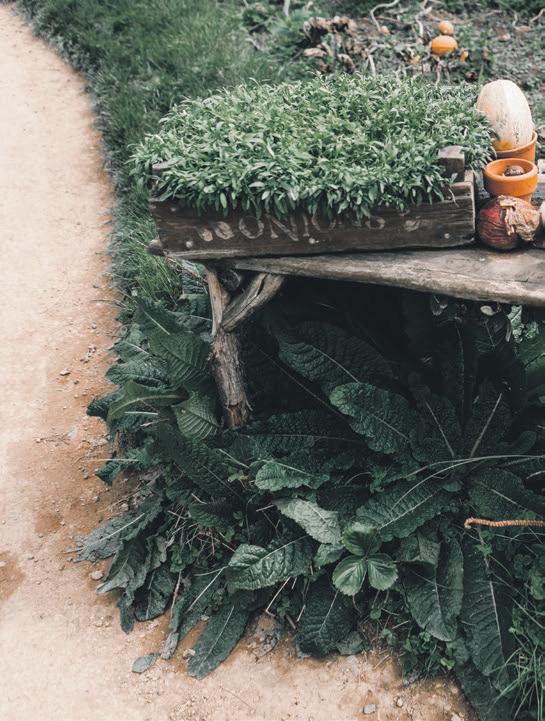
have a disproportionate impact on the planet, including climate change. We just don’t realise how privileged we are. And how contented we could be if we lived simpler lives that have a smaller footprint on the planet.” New Zealanders are being encouraged to have their say about how to tackle climate change. The Climate Change Commission (He




Pou a Rangi) has opened a public consultation exercise to help it develop advice to the Government about how best to tackle greenhouse gases, what the budget for that should be, and whether the 2050 emissions target is t for purpose.
Dr Rod Carr, the Commission’s Chair, is reported to have said that before the Commission
nalises its advice, it wants to test its thinking and make sure the recommendations are realistic and robust, as well as economically and socially bene cial in the long-term. This is because the recommendations will a ect “the whenua, our lives and livelihoods, and our global reputation.”
Because every little bit helps to lessen our environmental and climate impacts, Chris Peterson is getting involved with the worldwide Take the Jump programme. This is based on research from the University of Leeds on the behavioural changes people need to make in the developed world if they are to reduce their
levels of consumption.
If Chris has one purpose in life in his 70s, it’s to raise awareness of the importance and seriousness of climate change and associated issues. He refers to James Renwick, a renowned New Zealand weather and climate scientist, who has said that the best thing any of us can do about climate change is to talk about it. Chris agrees. He’s worried about the current government’s ‘fast track’ proposals for infrastructure that could ride roughshod over the environment but says the main thing we need to do within communities right now is to keep talking about environmental issues.

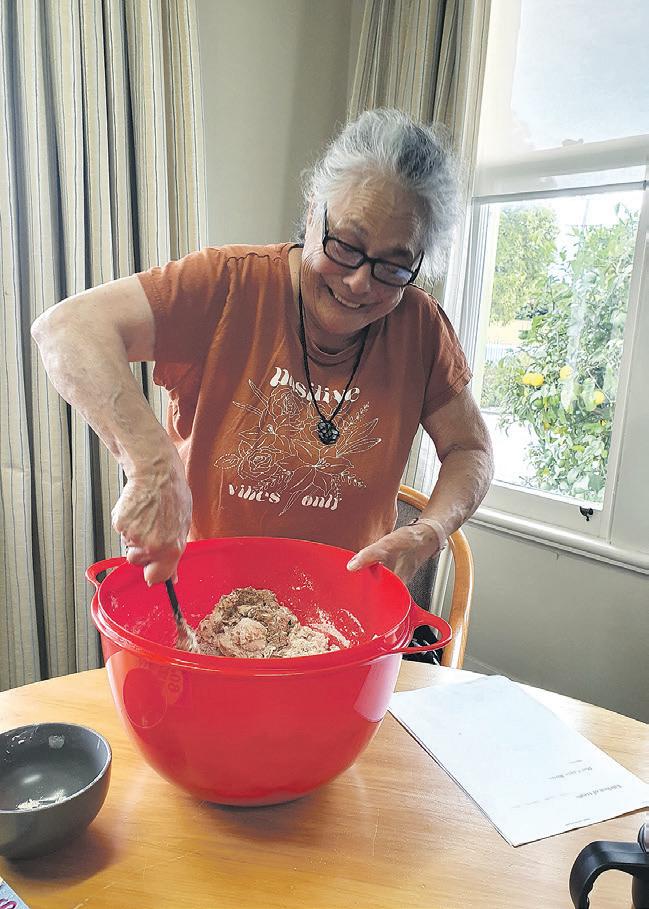

Our team’s aspiration for all residents at Lyndale is that each person is made to feel unique, throughHelping our residents make the most of every day
Lyndale Care is a special boutique facility that offers resthome and specialised dementia care
Lyndale care is a warm, friendly, homely place that allows residents to be independent and safe
Lyndale care is a family






